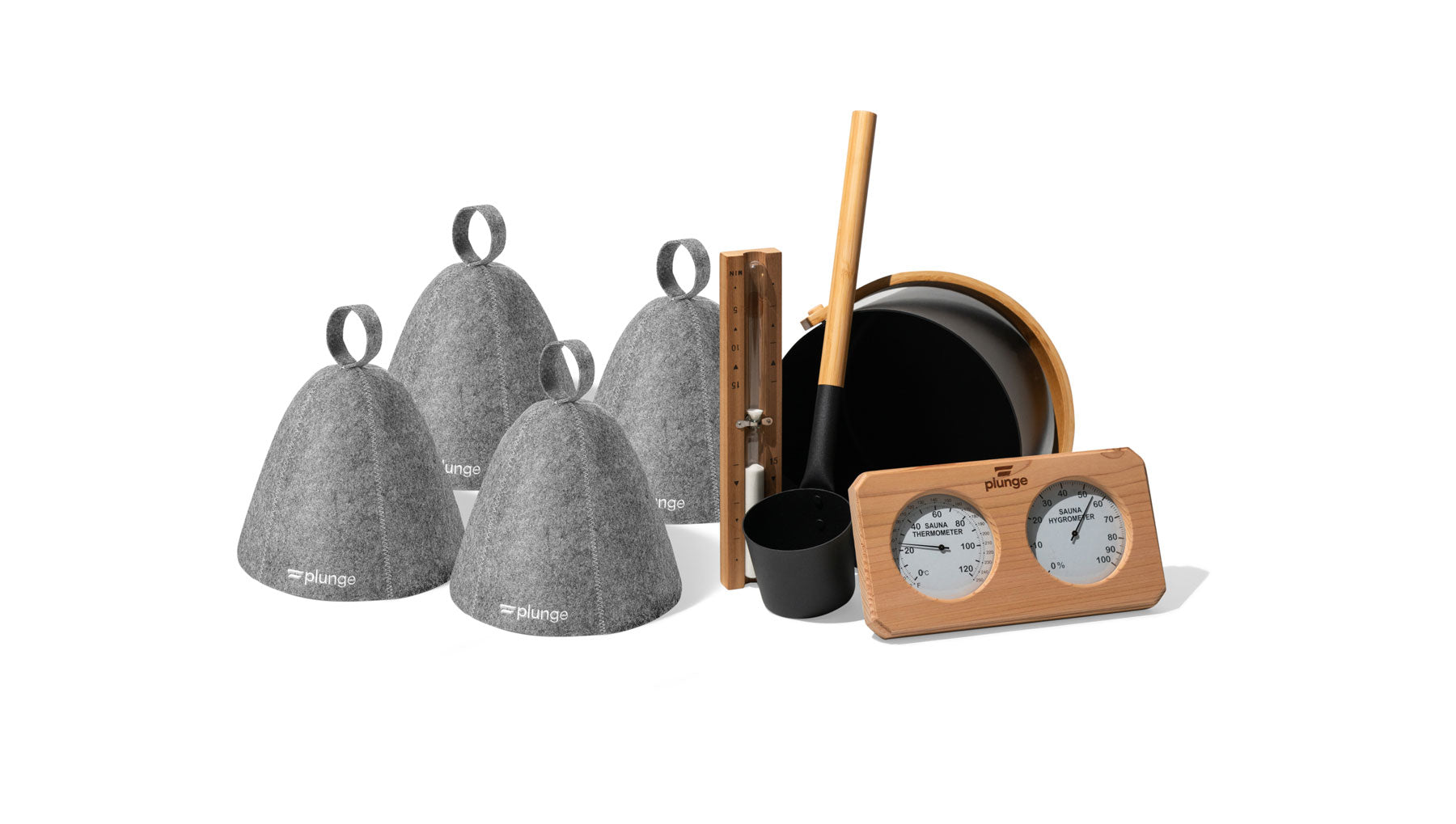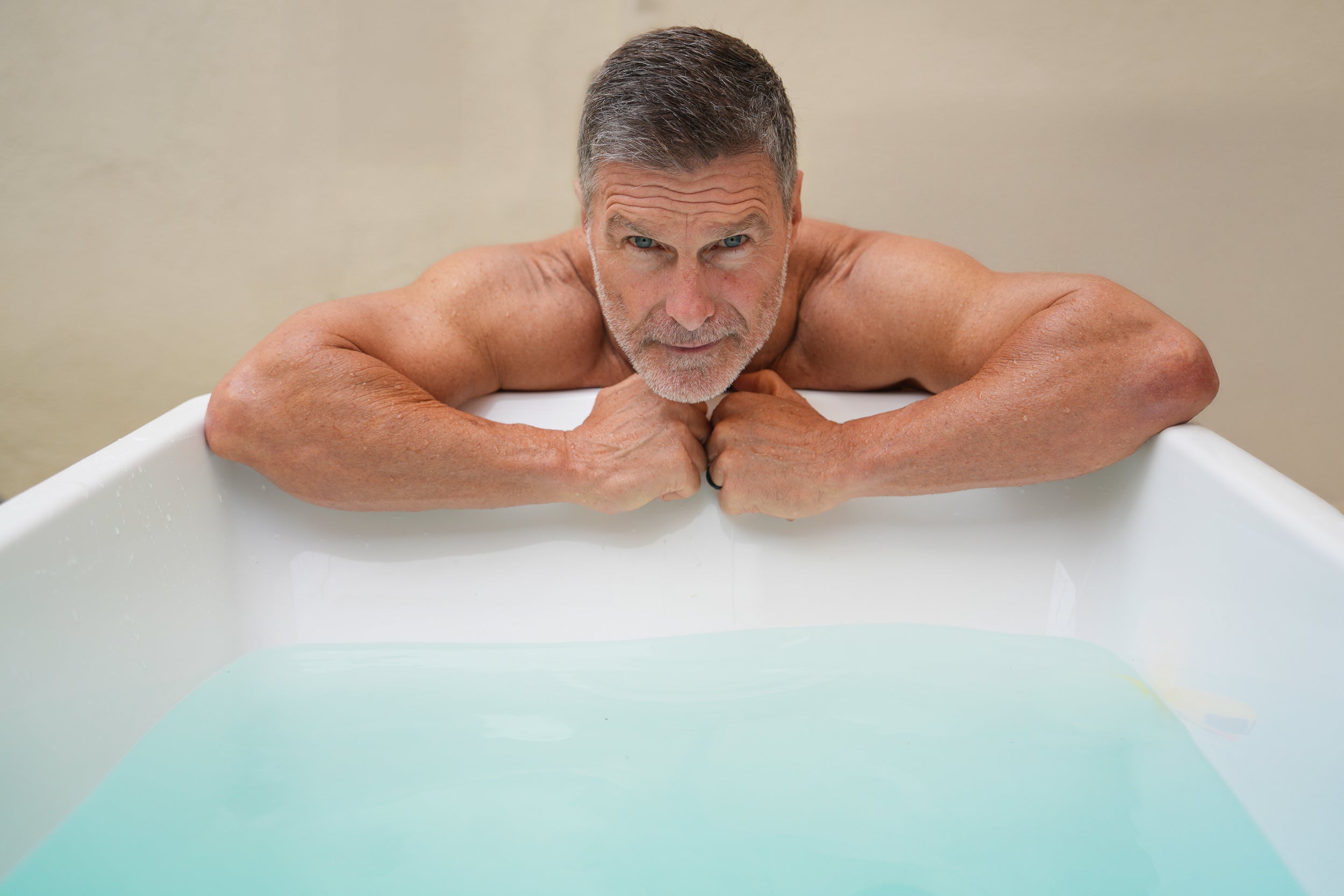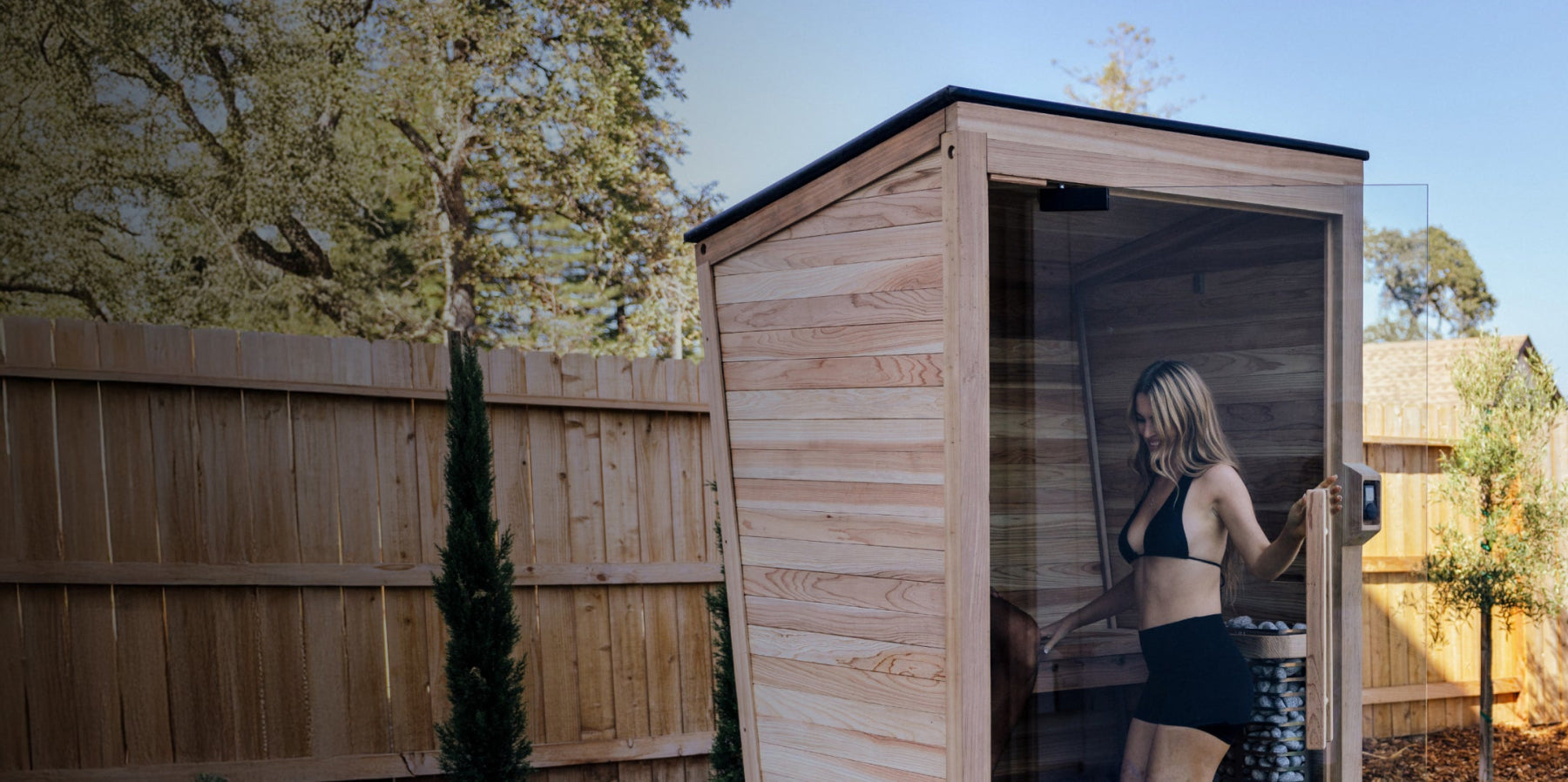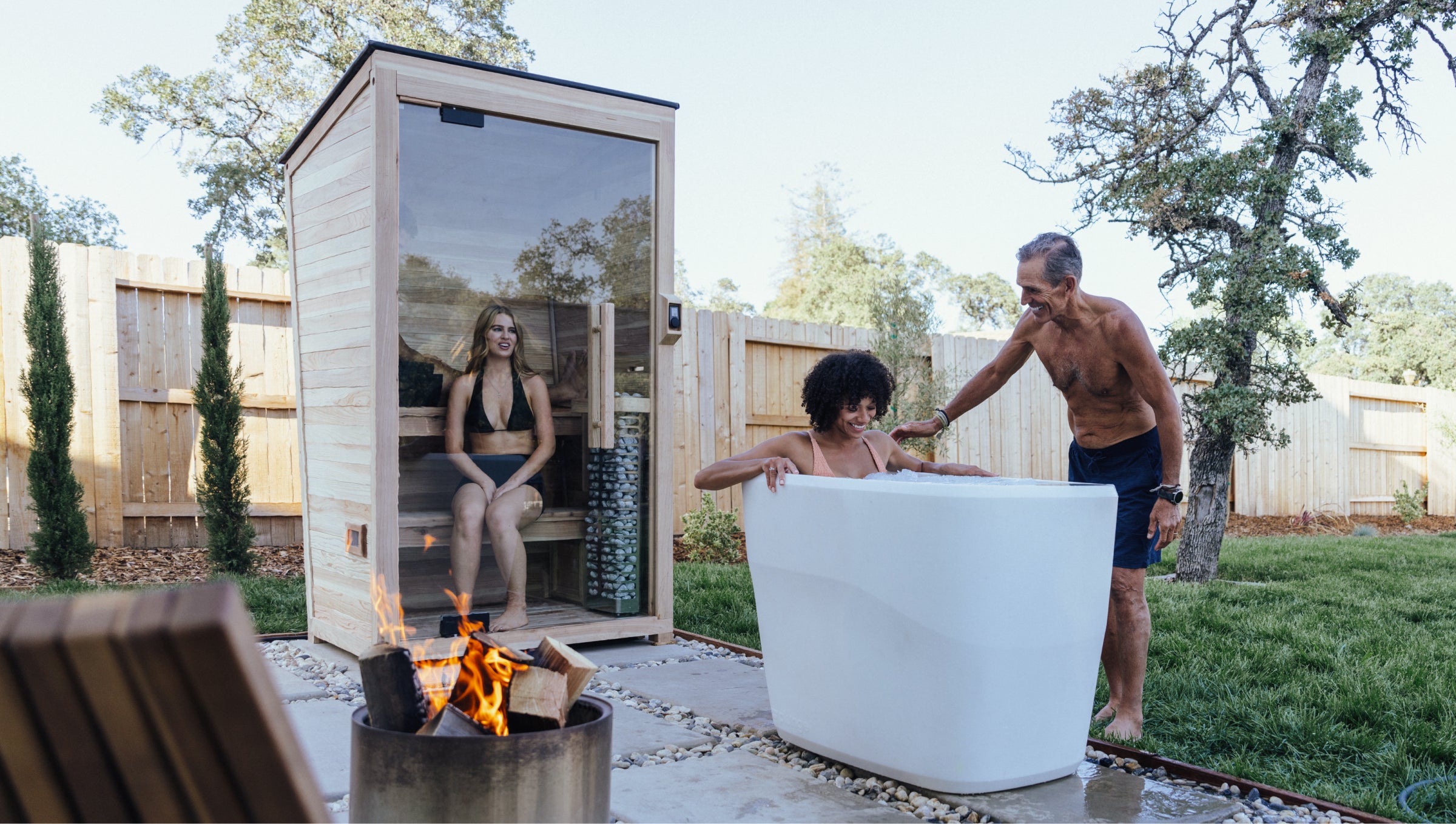
Cold Plunging When Sick
Feed a fever, starve a cold…a cold plunge chill when you’re ill? While the colder months bring festive cheer, they can also usher in seasonal illnesses. According to Johns Hopkins Medicine, “colds, flus, and other respiratory illnesses are often more common in colder months,” affecting both adults and children alike.
When you’re feeling under the weather, the thought of stepping into an ice-cold plunge might sound unappealing. But could it actually help alleviate symptoms and support your body in fighting off a cold? In this article, we’ll dive into the potential benefits of cold plunges and ice baths when you’re not feeling your best.
What Happens to the Body During a Cold?
Colds (contagious upper respiratory infections) are incredibly common for children and adults. According to research, adults experience two to four colds a year on average. This average increases during the colder seasons. While bothersome, most colds are harmless and clear up on their own.
When you catch a cold, one of the first signs is that your body will often run a temperature or fever as part of the immune system trying to fight off the infection. As your body makes a less hospitable environment for the virus, you may also experience other uncomfortable symptoms like fatigue, runny eyes and nose, aches, chills, or headaches. These symptoms are unpleasant, but show your body is working to recover from the virus.
Benefits of Cold Plunging While Sick
Rest is essential for recovery when you're sick. While cold plunges are best suited for times when you’re feeling well, they may offer some benefits that may help ease certain symptoms and provide temporary relief.
Endorphin Release
One advantage of cold plunging is it helps release endorphins and dopamine — the “feel good” hormones in your brain. These chemicals play a pivotal role in helping boost your mood and decrease stress. Endorphins can help alleviate discomfort and are often referred to as a body’s natural painkillers. According to Harvard Health, dopamine plays a key role in influencing heart rate, sleep, blood vessel function, and pain processing. Together, they can offer an energizing effect, offering temporary relief when you are under the weather. And a quick cold plunge can help boost both.
Boost the Immune System
Cold water immersion can also help boost your immune system. Cold exposure, including cold plunges, has been linked to the creation of new mitochondria, which play a role in energy production and cellular health. Cold exposure can also help increase the production of leukocytes, the white blood cells that help combat infections. On top of this, cold plunging is associated with stimulating your lymphatic system to help force fluid through your lymph nodes, which helps support the body’s natural detoxification process.
Potentially Improved Sleep
Cold plunging may enhance sleep quality by impacting a body’s thermoregulation and nervous system. Your circadian rhythm, which regulates sleep-wake cycles, is calibrated daily through different factors including sunlight and temperature changes. A cold plunge in the morning can help energize your body and signal the “start” of a day. Promoting a more synchronized circadian rhythm can potentially improve your ability to fall asleep later and stay asleep at night.
Risks of Ice Baths When Sick
While cold plunges offer numerous health and wellness benefits, it’s important to exercise caution when sick. The added stress of cold exposure can strain your body and potentially hinder recovery. During illness, the priority should be rest and self-care to support your body’s healing process. Once you’re feeling better, you can safely return to your regular wellness routine.
Added Stress on the Body
Cold plunges are a form of controlled stress on a body, which has many benefits to a healthy body. However, when your immune system is already weakened due to sickness, additional stress may exacerbate your symptoms. Your body’s resources are diverted to manage the cold exposure, leaving less energy to combat your illness.
Compromised Respiration
Breathing is critical during a cold plunge to help manage your body’s response to the sudden cold exposure. Controlled breathing helps calm and regulate your physiological reaction to the frigid water. When battling a cold, your nasal congestion and airways may be blocked, preventing you from breathing properly. This can compromise your respiration and increase the risk of adverse effects during your immersion.
Vasoconstriction Increases Core Temperature
Cold water exposure may seem like an excellent idea to help reduce a fever, but the opposite effect can occur due to vasoconstriction. When you immerse in cold water, blood vessels constrict, drawing blood away from your extremities and toward your core in an effort to preserve heat. However, this process can inadvertently raise your core temperature, which can exacerbate fever symptoms and hinder your recovery from illness.
Cold Plunging: Better for Prevention
Cold plunges help our bodies stay resilient. They have incredible wellness benefits, including helping align your circadian rhythm, boosting your mood, and improving sleep quality. However, cold plunges are best used as a preventative wellness tool, rather than a remedy for sickness.
With a cold plunge in the comfort of your own home, you can create a routine to help boost your physical and mental well-being. We offer a range of cold plunge options with flexible financing plans designed to fit seamlessly into your lifestyle. Learn more about our products (from our compact Pod to the top-of-the-line All-In) and explore how they can elevate your health routine today.
Medical Disclaimer: The information contained in this post is for informational and educational purposes only. It is not intended to provide medical advice or to take the place of such advice or treatment from a personal physician. All readers/viewers of this content are advised to consult their doctors or qualified health professionals regarding specific health questions or before embarking on any new health or wellness routine, including saunas and cold plunging. Neither the author(s) nor the publisher of this content take responsibility for possible health consequences of any person or persons reading or following the information in this educational content. All viewers of this content, especially those taking prescription or over-the-counter medications, should consult their physicians before beginning any cold plunging routine or other health or wellness program.























